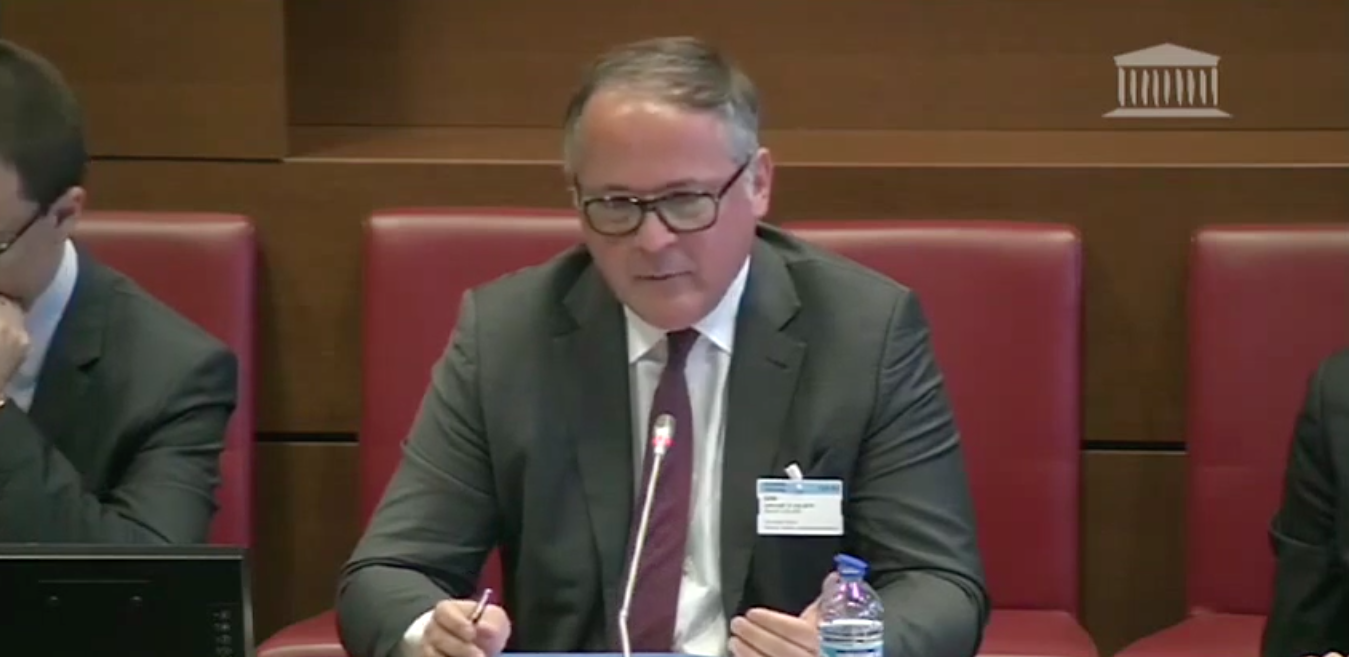“We aren’t deaf and blind to the debate on climate” Coeuré tells French Parliament

Questioned by French members of Parliament, the ECB’s board member Benoit Cœuré said the ECB can help fighting climate change, but the best way would be for governments to seize the opportunity of the current low interest rates environment which the ECB is providing.
This article is a translation of the Veblen Institute’s article.
What can the European Central Bank (ECB) do to help the fight against climate change? On the 15th of May, this question was at the core of the debate in the French National Assembly’s finance committee between MPs and Benoit Cœuré, member of the ECB’s executive board. On this rare occasion, not less than seven MPs from all political sides questioned Coeuré about the role of the ECB in the fight against climate change and in the transition toward a low-carbon economy.
Some of them even directly refer to the Positive Money Europe and Veblen Institute’s study published in February, reporting the massive investments made by the ECB towards companies operating in the most polluting sectors.
To this manifest expression of interest by MPs on the question, Mr Cœuré responded rather constructively. He even introduced his answer by reminding that climate change is “written in treaties [and] therefore it is a subject the ECB can’t ignore”.
(The video has also English subtitles, turn them on in the settings.)
MP Patrick Hetzel (Les Républicains), called out Mr Cœuré on the fact that “corporate bonds purchases operated by the ECB may not be sufficiently respectful of environmental aspects”, a direct reference to the issue raised by Positive Money Europe and the Veblen Institute in our study. A point his colleague Eric Alauzet (LREM) also reiterated.
Mr Cœuré explained that the current ECB’s policy is “neutral” regarding the structure of the market, “leading the ECB to effectively buy bonds from companies whose carbon footprint isn’t good”. But at the same time he had reminded to the finance committee that “for the same reasons [the ECB] owns almost 20% of the green bonds issued in the Eurozone”.
Greening monetary policy? An ongoing reflection at the ECB.
More questions flew in. MP Said Ahamada asked “how, in the framework of monetary policy, the ECB could be involved in the fight against climate change?”, while Mme Christine Pires Beaune (Socialiste et apparentés) suggested: “central banks can be […] major player in the fight against climate change”.
On this point, Mr Cœuré also showed a willingness to act, reminding that without prejudice to the price stability’s objective, the ECB supports the policies of the community. But mostly, he asserted that the idea of greening monetary policy was an ongoing reflection in the ECB. “We aren’t deaf and blind to the debate” he repeated.
Reinforcing the ECB’s legitimacy
However, Benoit Cœuré reminded that fight against climate change isn’t the only “secondary” objective which we could legitimately assign to the ECB. According to the ECB policymaker, it is not for the ECB itself to prioritize its secondary objectives. “Setting priorities among different objectives, this is the definition of politics […] and this is what parliaments do” he underlined.
In other words, it is up to European political institutions to clarify the secondary priorities of the ECB (outside of price stability), in order for the central bank to get the full political legitimacy to act on this field.
Financial conditions are already favourable to sustainable investments
At the end of the debate, Mr Cœuré reminded MPs that the low rates policy of the ECB “is a policy allowing investment. It is a policy allowing all Eurozone’s member states, their public institutions and their development banks, the European investment bank (EIB) to borrow at very low rates at a very long term for the low carbon transition and for climate change. This is thanks to the ECB. We are providing financial condition so that governments can use it and do whatever suits their political priorities.”
B. Coeuré even went even bolder:
“If the political priority is climate change, governments can decide to ask the EIB to do more for the climate. And [the EIB] could do so because interest rates are at zero and because the ECB is still buying EIB bonds. So in an indirect way, through monetary policy, we create an environment which is very favourable to long term investment. It is up to governments to seize the opportunity.”
Overall, the hearing proved to be an excellent exchange of views during which B. Cœuré reiterated several observations made in our recent study “Aligning the ECB with the EU’s Climate targets” released in February 2019.
Quite rightly, Mr Cœuré had insisted on the fact that the current policy of quantitative easing is an opportunity to implement more ambitious public investment policies, notably by relying on public banks such as the EIB, or the creation of a potential European Climate Bank. Nevertheless, he pointed out that such initiatives should be the responsibility of elected governments.